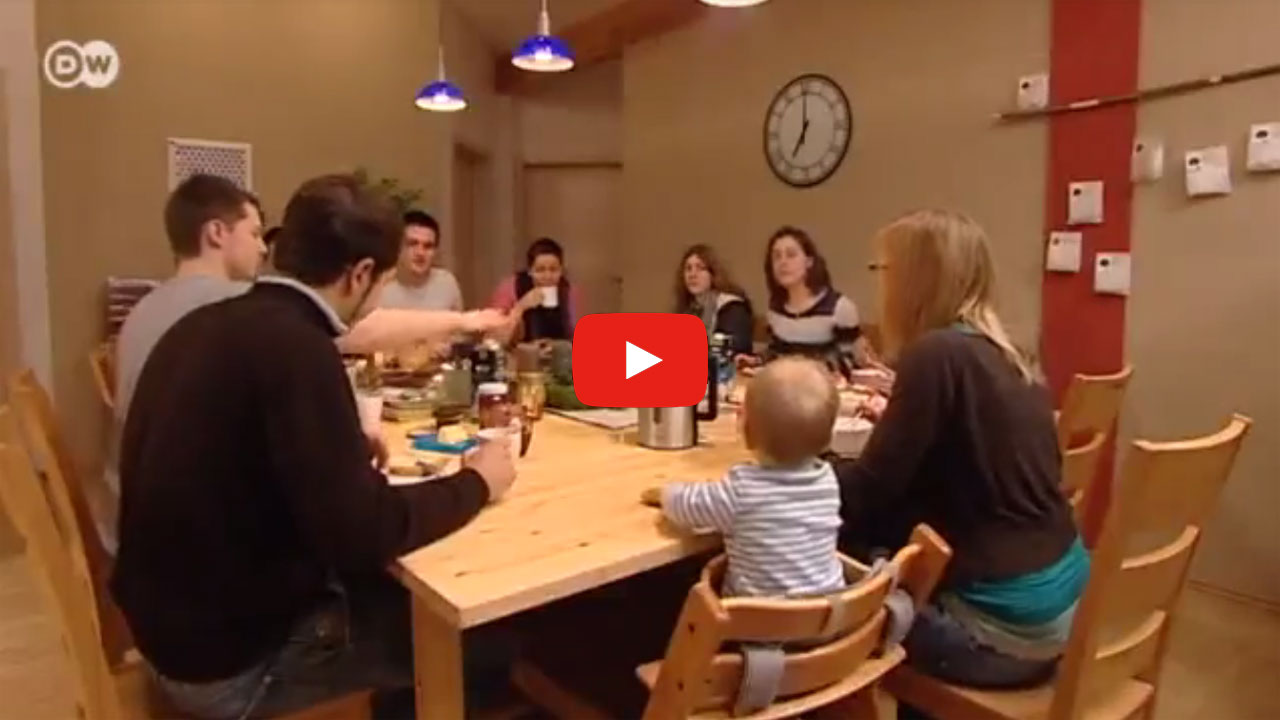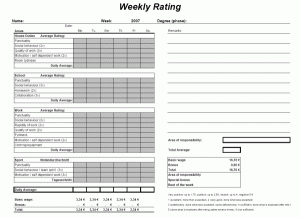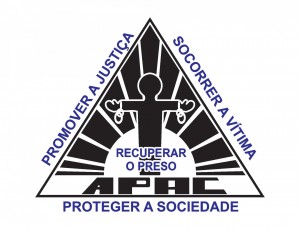Juvenile Prison in Free Forms „Seehaus“
Programme for juvenile delinquents as alternative to prison

Presentation (PDF)
Starting Point
Crime is a problem of the whole society. Imprisonment is necessary for some cases. A high recidivism rate after imprisonment shows, that especially new concepts and forms are necessary – especially for juveniles. For such a concept the needs of all groups involved have to be taken in consideration – the needs of victims, the community, offenders and their families:
Goals
In 2003 former Minister of Justice Prof. Dr. Ulrich Goll made it possible for the first time in Germany that juvenile offenders can serve their prison term in a programme of a NGO. 14-23 year old juveniles and young adults who are sentenced to a prison term of about 1-5 years are eligible for the programme. After being sent to prison they can apply for the innovative form of a juvenile prison. A committee of prison staff, the governor and staff of Seehaus will decide whether somebody is eligible for the programme. He will then stay for 12-36 months in the „prison in free forms Seehaus“, depending on his sentence.
The aim of the programme is that the juveniles learn how to live a life without crime. The juveniles have to learn, to take on responsibility.
- for their past – by participating at a Victim Awareness Group, a Sycamore Tree Project, community service and- on a voluntary basis – a Victim-Offender-Reconciliation-Meeting
- for the present – by living together with other students and staff and cultivating a community of love and a positive peer group environment
- for the future – by preparing for a life without crimes, for a life in and for the community
- before God and fellow human beings
The programme
One day in juvenile prison in free forms:
The young offenders are separated from other prisoners and the prison culture in order to protect them from negative influence. They receive the possibility to participate in the alternative to prison „Seehaus“. They live in groups of 7 students together with a family or house parents. Through a positive group concept they learn to take on responsibility for themselves, for each others and for the programme. The perspective of victims is shown to the students. Restoration, Community Service and Victim-Offender-Reconciliation-Meetings (Sycamore Tree Project) help the students to take on responsibility for their crimes and give a (symbolic) restitution towards the victim and the community. A change of life style can be reached best by a change of the norms and values of a person.
Staff want to live their Christian faith by example. At the same time they challenge the juvenile to find their own system of norms and values. The programme is open for male participants no matter of their religious, ethnic or national origin.
In order to give a good foundation for their future life, the students are challenged in the following areas:
- School: the students receive school education with the goal to get their High School Diploma.
- Work & Vocational Training: the students help to renovate the historic buildings on the property, they can choose between different workshops and get vocational training in the area they have chosen.
- Athletics: through athletic activities the feeling of self-worth can be increased, legitimate ways of receiving affirmation within the community and they learn to practice a team spirit.
- Leisure time activities: the students learn how to use their free time by meaningful leisure time activities.
Integration into the community is reached by a cooperation with Churches, youth groups, athletic clubs, NGOs and with the local economy.
Volunteers play an important role in the lives of the students. Godparenting, mentoring, study groups and leisure time activities are some of the activities which are offered by volunteers.
The programme is based on the APAC programme from Prison Fellowship Brazil (FBAC).
Another model is Gefährdetenhilfe Scheideweg, where families take in ex-offenders in their families and also give them a good trade education.
Seehaus (Prison Fellowship Germany) is member of Prison Fellowship International and therefore has partner organizations in 120 countries.
Pictures on flickr.
Basic Norms
- We do not hurt anyone – neither through words nor through deeds.
- We respect ourselves and each other.
- We resepect our property, the property of others as well as the one of the Seehaus Leonberg.
- We participate actively and positively in the Seehaus Leonberg and in the group process.
- We take on responsibility for ourselves, for others and for the Seehaus Leonberg.
- We will not do anything that will put ourselves or the Seehaus Leonberg in a bad light.
- We treat each other politely and with respect.
- We do not take illegal drugs, we do not accept drugs or given them to others.
- We follow the norms and rules of the Seehaus Leonberg.
- We confront in order to help, not to hurt.
- We accept confrontation and critics.
- We do not leave the property of the Seehaus Leonberg without explicit permission of staff.

 EN
EN ES
ES

